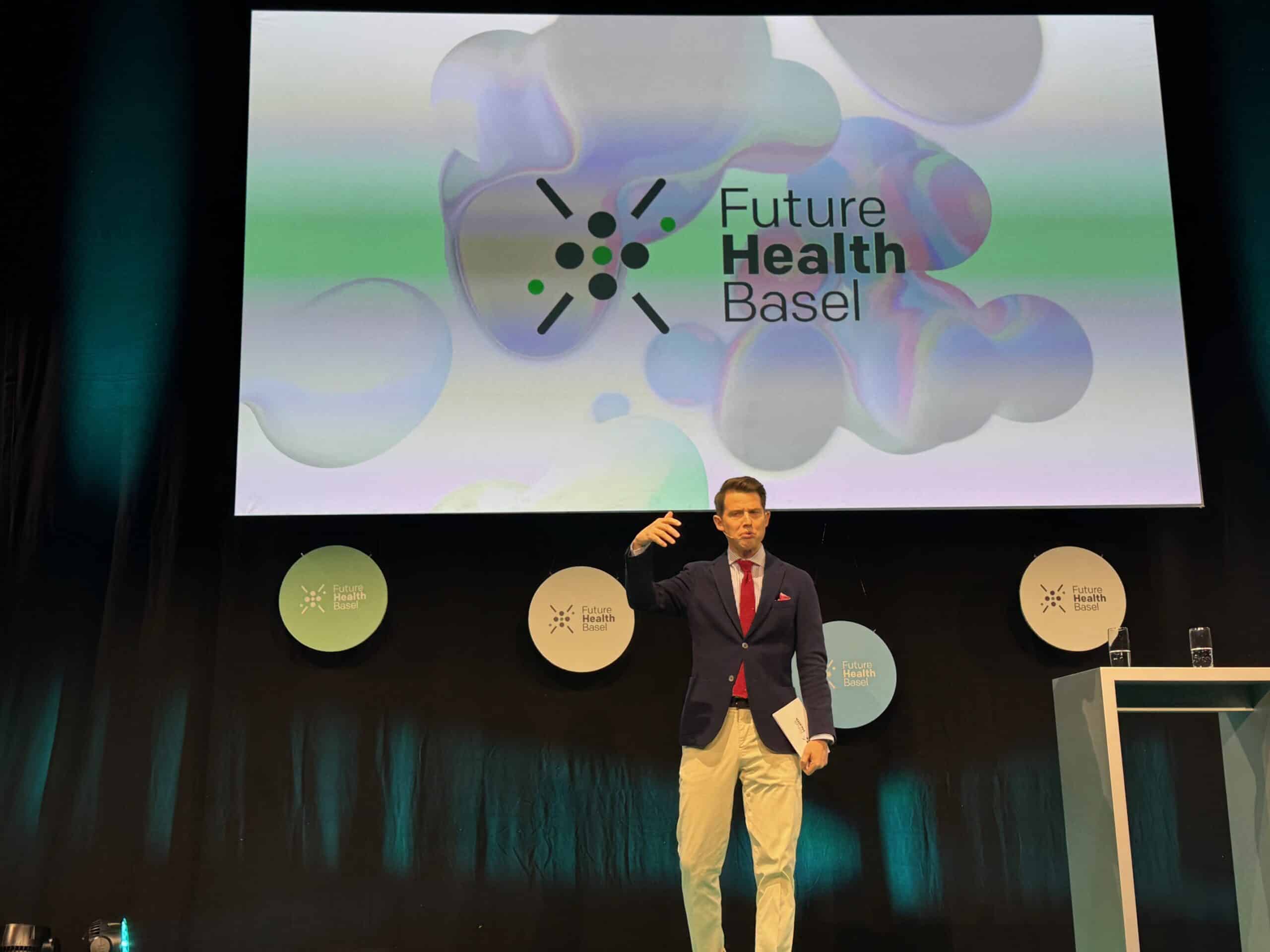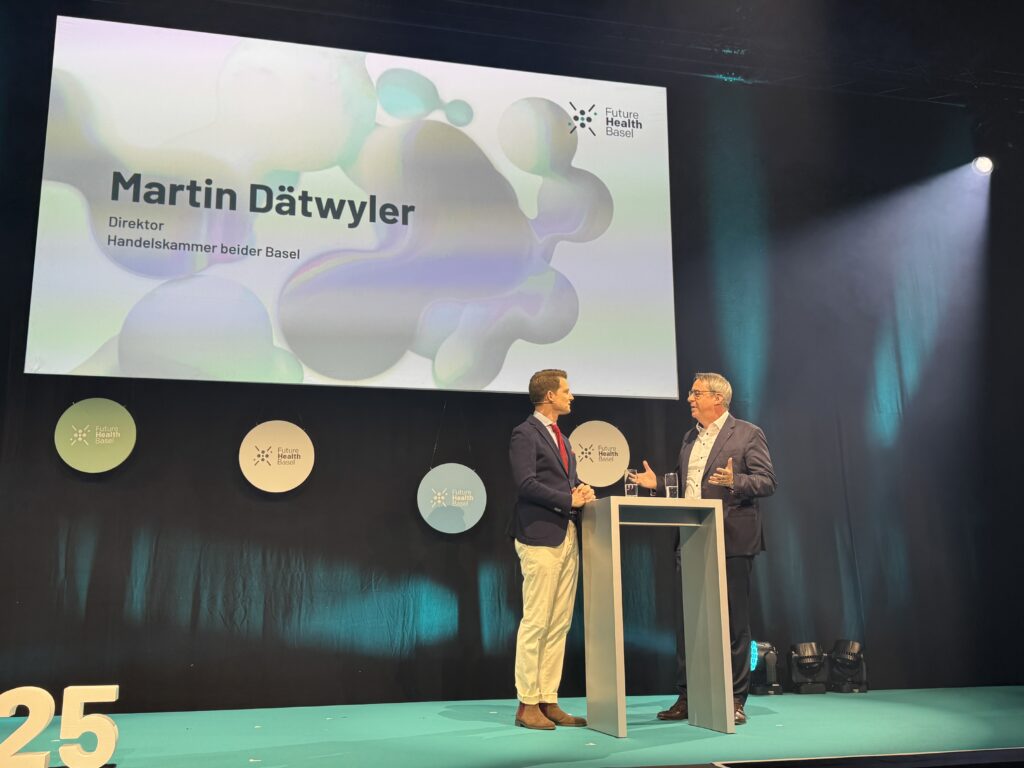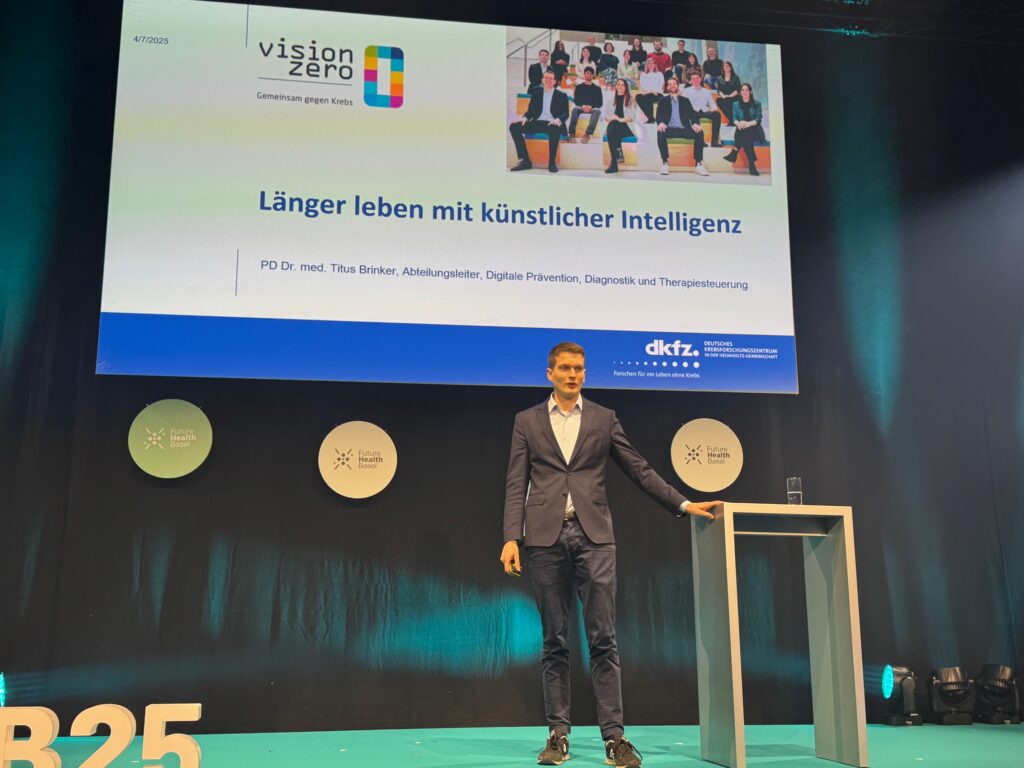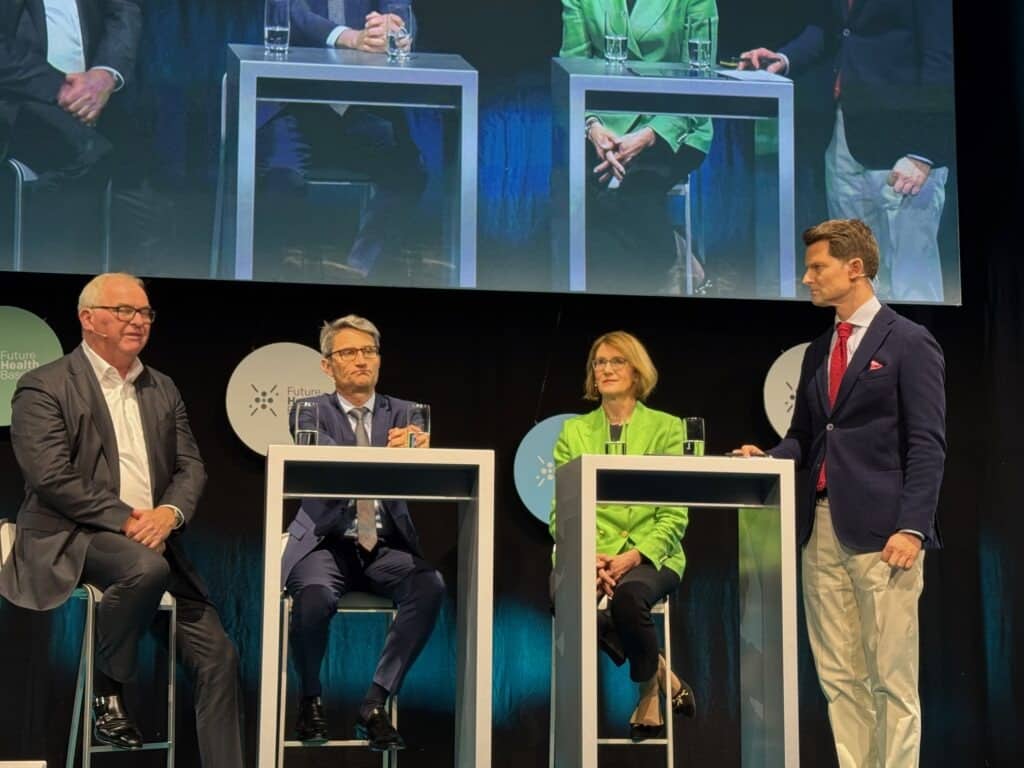Data, diagnoses, breakthroughs – how AI is revolutionising healthcare
14 April, 2025 | Current General Current General Nicht kategorisiert
On 7 April, visionaries, researchers and decision-makers met in Basel to rethink the future of healthcare. The central topic: how artificial intelligence (AI) and data-based systems can make medicine more efficient and precise – and where the challenges lie. Doctor and comedian Dr Fabian Unteregger charmingly and competently guided the audience through the day.
The FutureHealth Basel 2025 conference showed that Basel has developed in recent years from a pharmaceutical centre to a European hub for data-driven health innovations. Start-ups, pharmaceutical companies, universities and digital service providers are joining forces here. The aim is to make anonymised, standardised and structured patient data available as a basis for better care, research and prevention. ‘Data is the backbone of modern healthcare,’ says Martin Dätwyler, Director of the Basel Chamber of Commerce.

Martin Dätwyler, Director of the Basel Chamber of Commerce, (right) gave a welcome address.
The platforms for this are already emerging: digital twins of patients that simulate the progression of diseases enable customised therapies – faster than ever before. Such developments would hardly be possible without the exchange of data between clinics, research and industry.
From fear to efficiency
Whether it’s post-Covid syndrome, mental stress caused by constant crises or chronic illnesses, the burden on healthcare systems is constantly increasing. AI can help to provide systematic relief. There is great potential in early detection and prevention in particular. Systems that recognise deviations in behaviour, sleep patterns or blood values could serve as an early warning system in the future. This applies to doctors as well as patients. Dr Titus Brinker, head of the Division of Digital Prevention, Diagnostics & Therapy Steering at the German Cancer Research Center, said: ‘AI does not replace doctors, it complements them – especially where speed and precision are required.’

It’s not just about efficiency gains. The emotional relief of medical staff is also an argument. In a world full of data, humans become interpreters – not just diagnosticians.
Prevention reimagined
Another example of a smart and practical application was also presented in Basel: an app that simulates the effects of UV radiation on the skin, taking into account sunbathing behaviour, region and protection factor. The result: visible, personalised consequences that lead to real behavioural change. Among young people in particular, visualisation is more effective than any campaign. Prevention is not only made tangible, but can also be actively shaped.
An ecosystem for health
The strength of the Basel region lies not only in its economic clout, but also in its networking ability. This is where science, industry and public stakeholders come together to create synergies. The Future Health Conference acts as a catalyst and driving force. New projects such as ‘Health Data Space Switzerland’ show that Switzerland is well on the way to establishing a leading health data infrastructure. The goal: a learning healthcare system in which insights from one case can immediately benefit many.

Digitalisation: scepticism – and hope
At the same time, a tension is emerging: many people willingly share health data with smartwatches, fitness apps and tech companies – but refuse to release it for medical research. This paradox has to do with a lack of trust, but also with a lack of transparency. The debate about data sovereignty is therefore becoming the central issue in digital medicine. A suggestion from the audience: a health data trust model that manages the interests of citizens instead of leaving them to market logic.
Artificial intelligence in everyday clinical practice
In addition to research and prevention, AI is also finding its way into the daily routine of hospitals. Systems analyse laboratory values in real time, create risk profiles and support doctors in deciding on therapy options. Studies already show a significant improvement in diagnostic quality, particularly in oncology, emergency medicine and radiology.
For example, an AI system is currently being tested in Zurich that recognises strokes based on speech delay and facial symmetry within seconds, and is therefore faster than any emergency team.
Challenges and ethical questions
Despite technological progress, many questions remain unanswered: Who is allowed to use health data and how? How can algorithmic distortions be prevented? And how can access to innovations be ensured for all sections of the population?
Education and training will also have to change. In the future, medical professionals will need not only medical but also digital skills. Only those who understand algorithms can question them – and use them responsibly. ‘Technological development without an ethical framework is misleading. We need both innovation and integrity,’ said a panel discussion at FutureHealth.
Medicine is going digital – now it needs structure
The vision of data-based, precise and forward-looking medicine has long since become more than just a vision of the future. Basel shows that its implementation is within reach – when technology, ethics and trust work together.
Whether it’s artificial intelligence, personalised therapies or intelligent prevention, the medicine of the future starts with data. But, as always, it ends with the patient.
Binci Heeb




